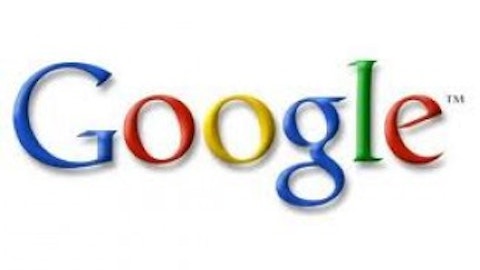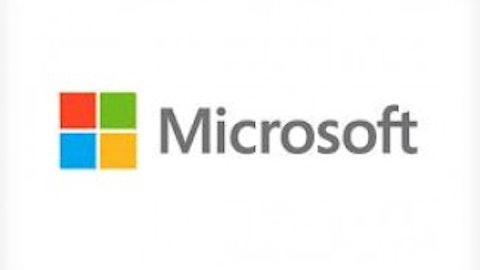3G Capital is a New York-based hedge fund that is backed by Brazilian billionaire Jorge Paulo Lemann. Officially the third wealthiest individual in Brazil, Lemann’s net worth is estimated to be in excess of $13 billion. Now in his early seventies, Lemann made his vast fortune via a range of investments in his home country, most notably by merging two of Brazil’s largest beer breweries and selling them to Belgium’s Interbrew in 2004. The eventual result of this massive merger was InBev.
Managing a mid-sized portfolio of U.S. equities worth around $450 million, Lemann has a particular penchant for the services sector, which accounts for nearly half of his entire 13F holdings. In this year’s third quarter, Lemann’s 13F portfolio returned an impressive 16.7%, good for fifteenth best among the firms we track. Here’s an entire listing of last quarter’s top performing hedge funds. Like many of its most successful peers, 3G Capital elects to hold a rather small amount of stocks – 2o to be exact – and is especially fond of its top two picks. This “delightful duo,” if you will, accounts for more than a fifth of Lemann’s total 13F portfolio, which can be seen in full glory here. Let’s take a peek at this top two; tech giant Google Inc (NASDAQ:GOOG) is one of them.
Before we get to Google Inc (NASDAQ:GOOG) though, let’s look at Lemann’s number one holding: Delphi Automotive PLC (NYSE:DLPH). As one of the largest auto parts suppliers in the world, there’s a lot to like about Delphi due to the sheer size of its operations. The company made $16 billion in revenues last year – up 16.2% from one year earlier – and reported earnings of $2.72 a share. By the end of this year, analysts expect the company to hit EPS of $3.81, a whopping 40% jump.
Looking at a longer perspective, the Street expects Delphi to generate EPS growth of 14.9% a year over the next half-decade. This is greater than chief competitors Magna International Inc. (NYSE:MGA) at 8.6%, and BorgWarner Inc. (NYSE:BWA) at 14.7%. Amid a less than desirable macroeconomic environment, Delphi is sitting in a better financial position than its peers because of its ability to shed inefficient operations, and is now a leaner, meaner company. In its most recent earnings report, the company revised its own year-end earnings forecast to $3.68 to $3.91 on the back of an “improved margin outlook.”
This isn’t even the best thing about Delphi, though, as it also trades at attractive valuation metrics no matter how way you slice it. Using the PEG ratio, which shows us how the markets are valuing a company’s expected earnings growth, we can see that Delphi is extremely cheap, sporting a PEG of 0.55. This is far below the likes of Magna (1.07) and BorgWarner (0.98), indicating that the markets have yet to “catch up” to Delphi’s superior growth prospects, and the same can be said about the company from a cash flow standpoint. Delphi trades at a paltry price-to-cash flow ratio of 6.4X, below Magna (7.2X), BorgWarner (15.1X), and the auto parts industry average (8.2X).
Lemann holds nearly $53 million worth of Delphi stock, slightly more than his holdings in Google Inc (NASDAQ:GOOG), the billionaire’s number two stock pick. Google accounts for 11.6% of 3G Capital’s 13F portfolio, and returned over 30% in the third quarter this year. Shares of the tech giant hit an all-time high of $774.38 in early October, but have since fallen nearly $100, as a pre-mature earnings release made quite the mess.
In its fiscal third quarter, Google Inc (NASDAQ:GOOG) made just $9.03 in EPS after reaching $9.72 at the same time a year ago. The Street was flabbergasted, expecting moderate Q3 EPS growth to $10.65 a share. In the company’s conference call, CEO Larry Page stated that his company was in the midst of a transition to mobile, claiming that “all of this abundance causes disruption.” Weighing down on Google’s top line, which missed targets by 5%, were its Motorola Mobility unit and cost per click revenues. All in all, CPC revenues were down 15% YOY, as monetization on mobile devices is inherently lower than it is on desktop computers.
Interestingly, Google Inc (NASDAQ:GOOG) may have been pushed too low as a result of the miss, and may see a positive revaluation over the next few months. Shares of the company currently trade at a P/E of 21.1X, below its industry’s average of 26.7X, and its own five-year historical average of 30.0X. The same can be said about the company from a book value and cash flow standpoint, as it looks to be discounted by as much as 20% in comparison to historical norms.
Now, it also bears mentioning that Apple Inc (NASDAQ:AAPL) sports a similar undervaluation, trading at a P/E (13.7X), P/B (5.0X), and P/CF (10.9X) below historical norms, and may actually be more attractive than Google Inc (NASDAQ:GOOG) from a growth standpoint. Google’s main adversary sports a PEG ratio of 0.66, while it trades at a much more moderate PEG of 1.35. Typically any figure below 1.o signals an undervaluation, and any figure between 1.0 and 2.0 signals a fair valuation. Judging by the advantage that Apple has when it comes to five-year expected EPS growth – 20.6% to Google’s 15.7% – we can see that the markets may be treating it in the same manner as Delphi.
Based on the valuation alone, we’d have to go with Apple over Google Inc (NASDAQ:GOOG) at the moment, but can understand if a case is made for the latter of the two tech giants. Regarding Lemann’s top pick, however, there seems to be little debate as to which auto parts company is the most attractive at the moment. For a complete look at the Brazilian billionaire’s 13F portfolio, continue reading here.






